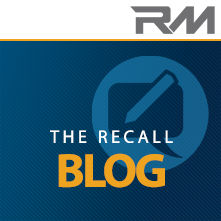Trust: A Key Ingredient in Retaining Customers
Trust: A Key Ingredient in Retaining Customers
A Blog Post by Sean Reyes, Chief Marketing Officer for Recall Masters
The future of vehicle and customer safety involves every department in the dealership. It’s true – some dealers can focus too much on a single department or their CSI feedback. Inevitably, management ends up chasing negative feedback instead of proactively addressing problems before they manifest into something systemic. In my opinion, it is all interconnected
The customer experience isn’t limited to any one department. It can be impacted positively and negatively by each department’s interaction with the customer. The customer could have a great experience in the sales process and then a poor experience in F&I. Or they could be on their way to becoming a loyal customer and have a poor experience in service. Think of a dealership (or any business for that matter) as a chain. The chain is only as strong as its weakest link. How then can a dealership shore up its processes and mindset to optimize the experience?
- Sales – Consumers aren’t just looking for the best price, but also a vehicle that they can rely on and a seller that can be trusted. With a new car, the trust is backed by a warranty. With a pre-owned vehicle, consumers are not as secure but tend to give franchised dealerships the benefit of the doubt over independent dealers and private parties. Dealers have different options to acquire used inventory, including at trade-in, auction, or through a private party. Regardless of the method, consumers are relying on the dealership, its integrity, and branding to sell them a safe vehicle that will meet their needs. They also want peace of mind and the security that comes with purchasing from a franchised dealer. Play up this fact in your social media, on your website, and in your marketing. But only when you can back it up with actions that validate what you say. There’s a high price to pay with consumers when you say one thing and then do another.
- Service – Consumers bring their vehicles to a franchise dealership because they trust their vehicles will be serviced properly. While they can also service at an independent repair facility, consumer surveys they would rather service at a franchise dealership when it comes to preserving their vehicle as an asset. That trust, however, can come at a price if dealerships don’t do their due diligence in service. Yes, dealerships (and service advisors) typically do a good job with their service recommendations. Where it gets annoying for consumers is if they have just completed their service and the next day discover they have an open recall that could have been handled during the service visit. The service department failed to check, and that inaction can easily erode any customer loyalty the dealership may have built with them. It is a simple process these days to check the VIN for any outstanding recalls.
- Safety — When vehicles are acquired, most of the time those acquisition values are made via various software platforms showing historical sales data in addition to a physical inspection for appearance. Few valuations include open recalls. The vehicle may be the most beautiful and desirable, but if recalls aren’t factored in and it is an off-brand vehicle, you will either need to send the vehicle to a competing brand to get the recall repaired or decide to sell without fixing. Is not fixing the recall pre-retail within your rights and legal? Yes, it is. Will it be for long? Eventually, the law will change. What is the right thing to do for the consumer? At the very least, you should be transparent about the presence of a recall. And, no, I don’t think signed disclosures highlight the dangers enough for consumers.
Still, I understand the difficulty of selling a vehicle when you lead with how dangerous it is. You only need to lead with a message of driver safety. Regardless, any issues that arise won’t be blamed on the manufacturer but rather on the dealership unless you are fully transparent. It is better to ensure that car is 100% safe and free of recalls. At least be transparent about the presence of recalls and where to go to resolve them. You might even go the extra step and identify for the new owner how to resolve the recall with the franchise dealer of that vehicle’s brand. I’ve heard of dealers who even scheduled the repair appointment at the time of sale to mitigate any risks. While it is legal to sell a used car with an open recall, the dealership is still on the hook financially under state product liability laws.
Neglecting any of these points can detract from your dealership’s brand integrity. Any mishap or mistake, whether intentional or not, can affect future business. Brand integrity is imperative to the future health of any business. Building trust with your customers based on experience, quality, and safety, will ultimately determine whether consumers choose to do business with you. Lose trust and you will lose business.
About the Author


